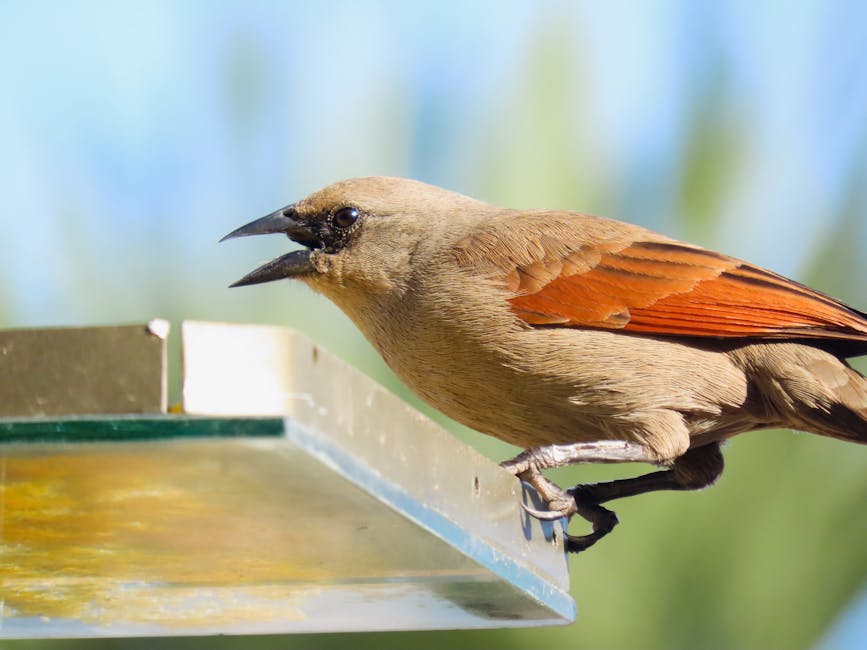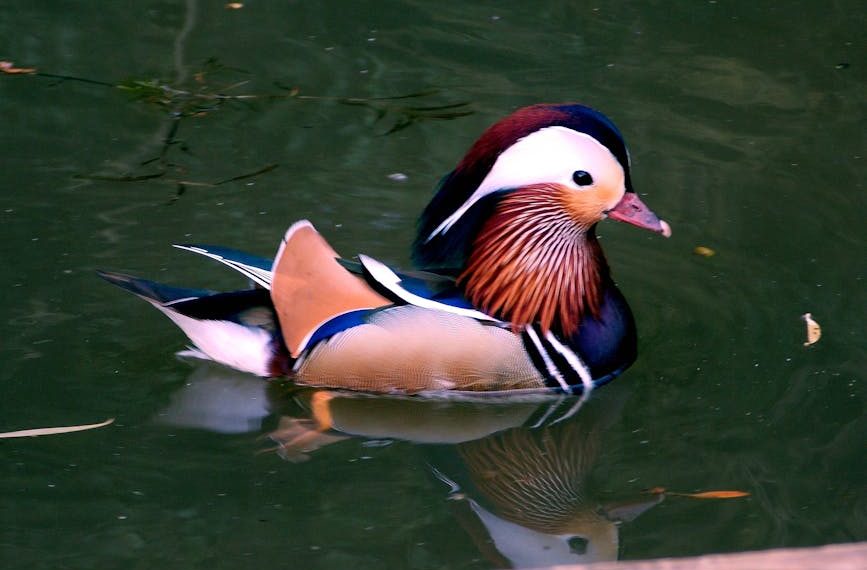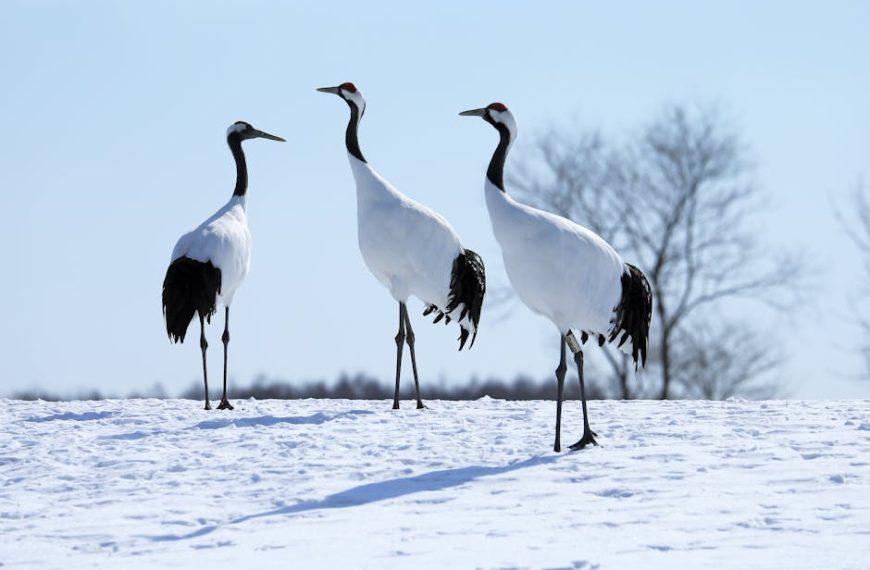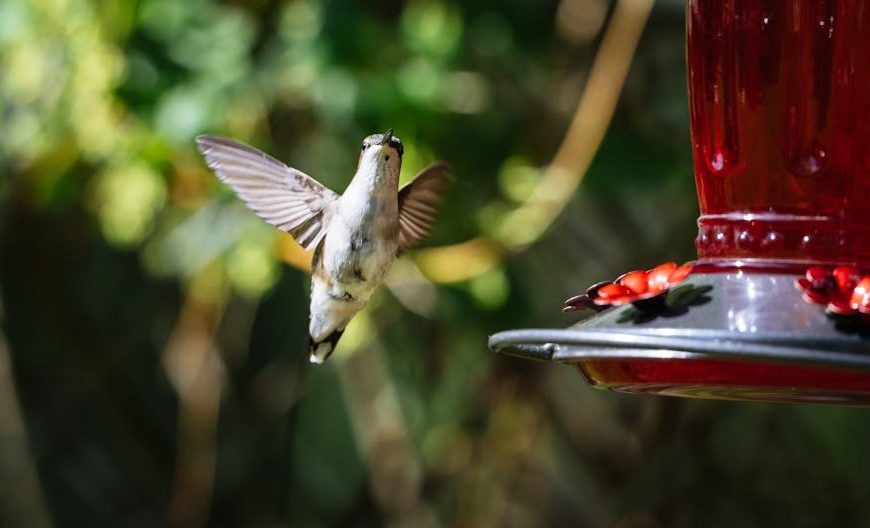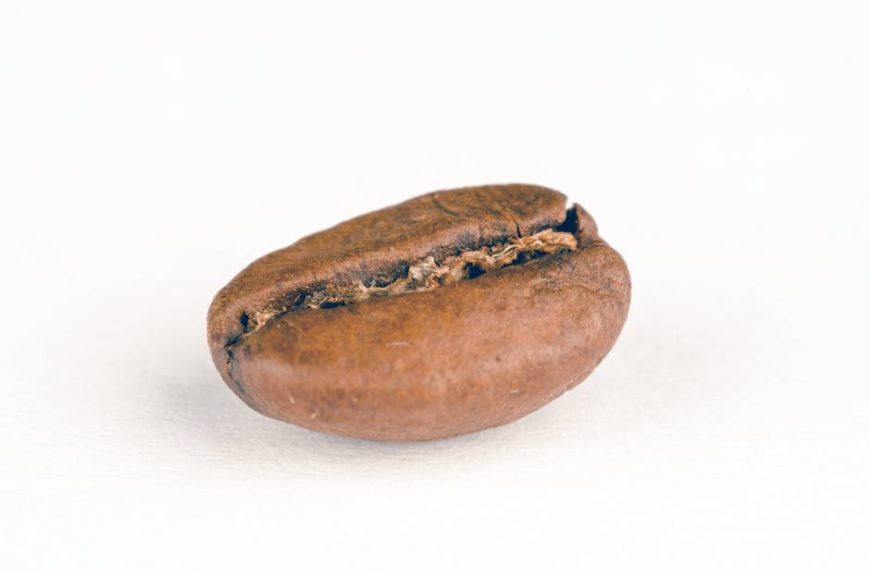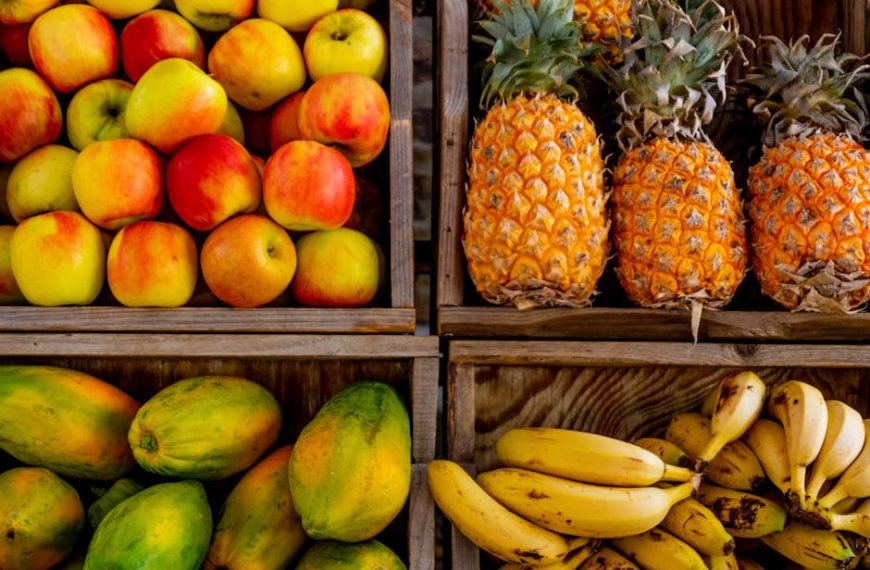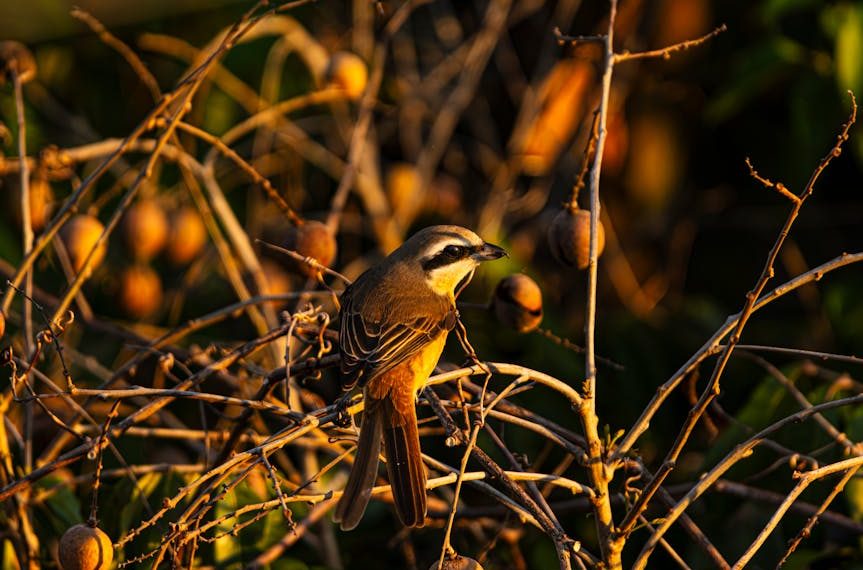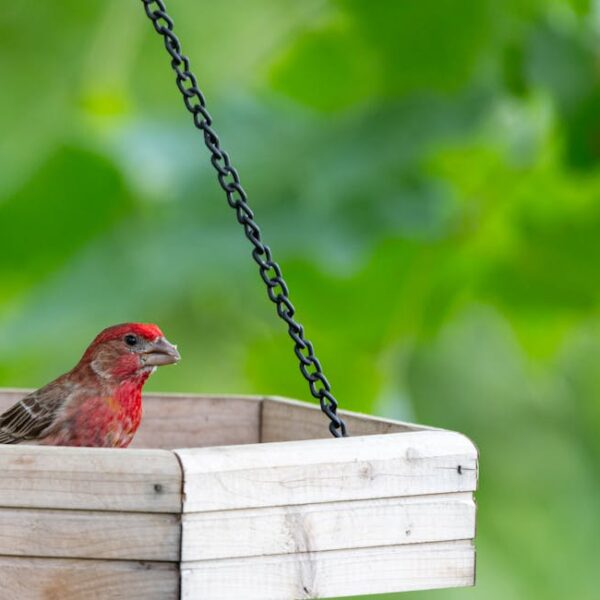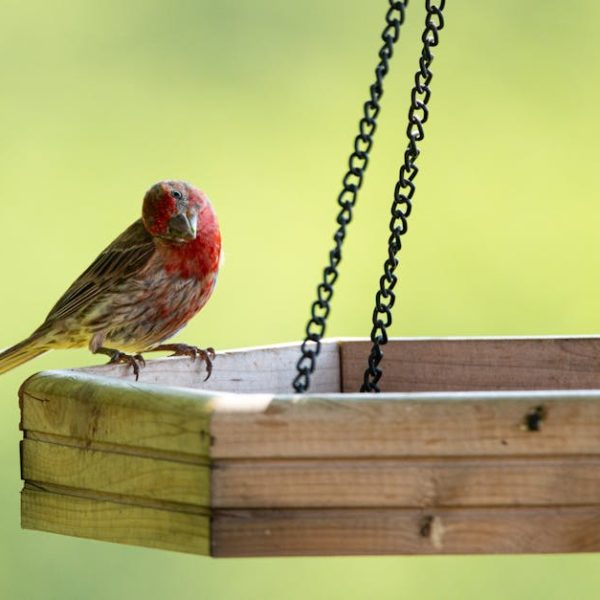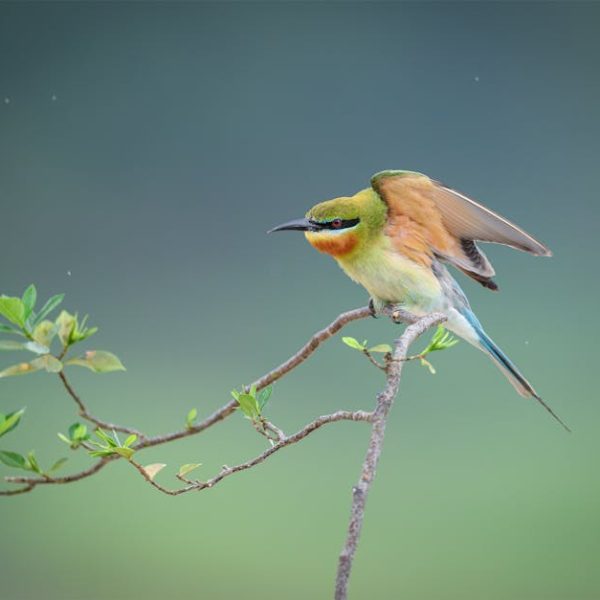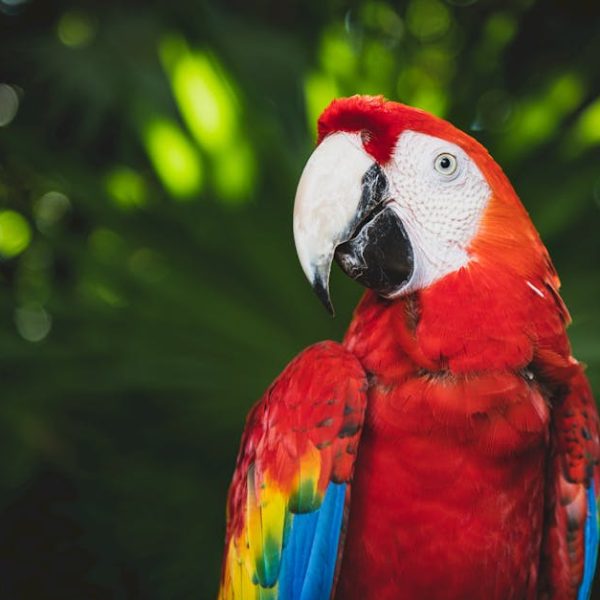Striped sunflower seeds are often associated with fall decorations or roasted snacks for humans. However, these versatile seeds are a favorite among many bird species thanks to their high nutritional content. Packed with essential fats, proteins, minerals, and vitamins, striped sunflower seeds deliver the necessary energy birds require, especially in colder months.
Striped sunflower seeds contribute significantly in maintaining a bird’s health. The seeds are rich in vitamin E, which strengthens a bird’s immune system. The high-fat content provides birds with energy and helps keep their feathers vibrant and glossy.
Pro tip: Proper storage of striped sunflower seeds is important to retain their freshness and nutritional value. Keep the seeds in a cool, dry place in a sealed container to prevent moisture and pest intrusion.
Cardinals – Enthusiasts of Striped Sunflower Seeds
Cardinals, with their brilliant red plumage and distinguished crest, are a favorite among birdwatchers. Cardinals have a preference for striped sunflower seeds due to their high caloric value, which is vital to their survival, especially during colder seasons. Offering these seeds in your birdfeeders can significantly attract this species.
Creating a cardinal-friendly environment in your backyard isn’t challenging. Here is a quick checklist:
- Use a larger, platform-style bird feeder. Cardinals prefer broad-ledge feeders to small perched ones.
- Place your bird feeders near shrubs or trees where cardinals can quickly find cover from predators.
- Maintain a regular feeding schedule. Cardinals are early risers, so consider filling your birdfeeders at dawn.
Blue Jays’ Affinity Towards Striped Sunflower Seeds
Blue Jays are yet another bird species keen on striped sunflower seeds. These seeds provide the needed energy for the Blue Jay’s boisterous and social lifestyle.
Attracting Blue Jays to your garden or yard requires a bit of strategy. Here are a few tips:
- Use a rugged, sturdy bird feeder able to withstand the weight of a visiting Blue Jay.
- Consider adding a squirrel guard. Blue Jays are wary of these creatures.
- Keep the bird feeder stocked with plenty of striped sunflower seeds, as Blue Jays tend to visit feeders with abundant food supply.
Versus: When compared to others, Blue Jays exhibit distinct dietary habits – they hoard and store food frequently and prefer larger, whole seeds (like striped sunflower seeds) owing to their bigger size and strong bill. This sets Blue Jays apart from other bird species which may settle for smaller seeds or a variety of food options. No matter the dietary habits of various birds visiting your garden, ensure that their needs are being catered to accordingly.
Titmice, Nuthatches, and Striped Sunflower Seeds
Titmice and nuthatches are tiny but assertive lovers of striped sunflower seeds. Incorporating these seeds into their diet offers them healthy deposits of fats and protein, essential for their active lifestyles.
When aiming to attract these species, optimal placement of the seeds is key. Here are a few suggestions:
- Utilize a hanging tube feeder. Both titmice and nuthatches prefer feeding in seclusion, and feeders above ground help provide this.
- Aim for a quiet spot. These species are cautious and are often scared off by loud noises.
- Protect your feeders from potential predators such as squirrels, to ensure the birds feed peacefully.
Best Practice: Preparing striped sunflower seeds to attract titmice and nuthatches could involve cracking the outer shell slightly to expose the seed kernel. This makes it easier for smaller birds to consume the seeds and increases your chances of attracting diverse bird species.
Grosbeaks’ Obsession with Striped Sunflower Seeds
Grosbeaks, recognized by their large beak size, are particularly drawn to striped sunflower seeds. These seeds are a staple in their diet due to their high fat and protein content.
To attract Grosbeaks, bird lovers can take the following steps:
- Offer striped sunflower seeds in tube feeders. Grosbeaks, being larger birds, are more comfortable with these types of feeders.
- Locate your feeders close to fruit-bearing trees or shrubs, as Grosbeaks are also partial to fruits.
- Keep a consistent feeding schedule. As with other bird species, Grosbeaks appreciate predictability in their food sources.
Pros and Cons: While striped sunflower seeds offer various benefits, it’s important to note potential downsides. Providing only one type of seed may deter bird species with different preferences. Moreover, too many sunflower seeds may lead to waste, attract pests, or potentially cause an overdependence on this food source, particularly for Grosbeaks.
Common Myths Regarding Striped Sunflower Seeds and Birds
Several myths surround the use of striped sunflower seeds for bird feeding. One common misconception is that these seeds are only appropriate for larger bird species due to their hard outer shell. In reality, even smaller species can crack open these shells and access the nutrient-rich kernels inside.
Another myth suggests that sunflower seeds alone can provide all the necessary nutrients for birds. While these seeds are nutritious, they should form a part of a balanced diet that includes a variety of foods for optimum bird health.
Pro Tip: Integrating striped sunflower seeds into a bird’s diet should be done judiciously. Other seed types, fruits, and even insects can help supplement their diet and ensure a broad spectrum of nutrients. Balance is key for a healthy, happy bird population in your backyard.
Key Takeaway:
- Striped sunflower seeds are favored by many bird species due to their high nutritional content, particularly beneficial in colder months. They actively contribute to a bird’s health and enhance their feather colors.
- Important bird species like Cardinals, Blue Jays, Titmice, Nuthatches, and Grosbeaks show a distinct affinity for striped sunflower seeds due to the vital nutrients and energy they provide.
- While feeding striped sunflower seeds can attract a variety of birds to your backyard, it’s equally crucial to be aware of each bird species’ habits and preferences while designing and placing bird feeders.
- Ensuring balance in a bird’s diet is crucial; hence even though striped sunflower seeds are nutritionally rich, they should not be the sole food source for birds
Remember that bird feeding not only enriches the lives of the birds but also provides endless hours of joy for bird watchers. Paying attention to what our feathered friends prefer to eat, their feeding habits, and keeping a balanced diet will ensure you have a vibrant, lively, and happy bird community gracing your backyard.
FAQs
Q: Besides striped sunflower seeds, what other types of food can I feed the birds?
A: Different types of birds prefer different foods. Adding other seed types, fruits, and even insects to their diet can supplement it. Make sure to research what the specific bird species in your backyard prefer.
Q: How often should I refill the bird feeders with striped sunflower seeds?
A: Maintaining a regular feeding schedule helps, as birds appreciate predictability in their food sources. You could choose to refill the feeders daily or every alternate day based on the consumption.
Q: How can I prevent pests and squirrels from invading the bird feeders?
A: You can add a squirrel guard to your feeders or choose feeders with small feeding ports that only allow birds to access the seeds.
Q: My backyard appears to attract larger birds more often, why might this be happening?
A: Larger birds may prefer your backyard if you mostly provide large seeds such as striped sunflower seeds. For attracting smaller birds, consider including smaller seeds or food options.
Q: Why do my Blue Jays store food more frequently?
A: Blue Jays are known to hoard and store food frequently. It’s a behavior specific to them and possibly a survival tactic to ensure food availability during scarcity.
Don’t forget to share this article with other bird enthusiasts you know! Check out our other posts for more engaging content on bird species, their habits, and bird feeding best practices.
